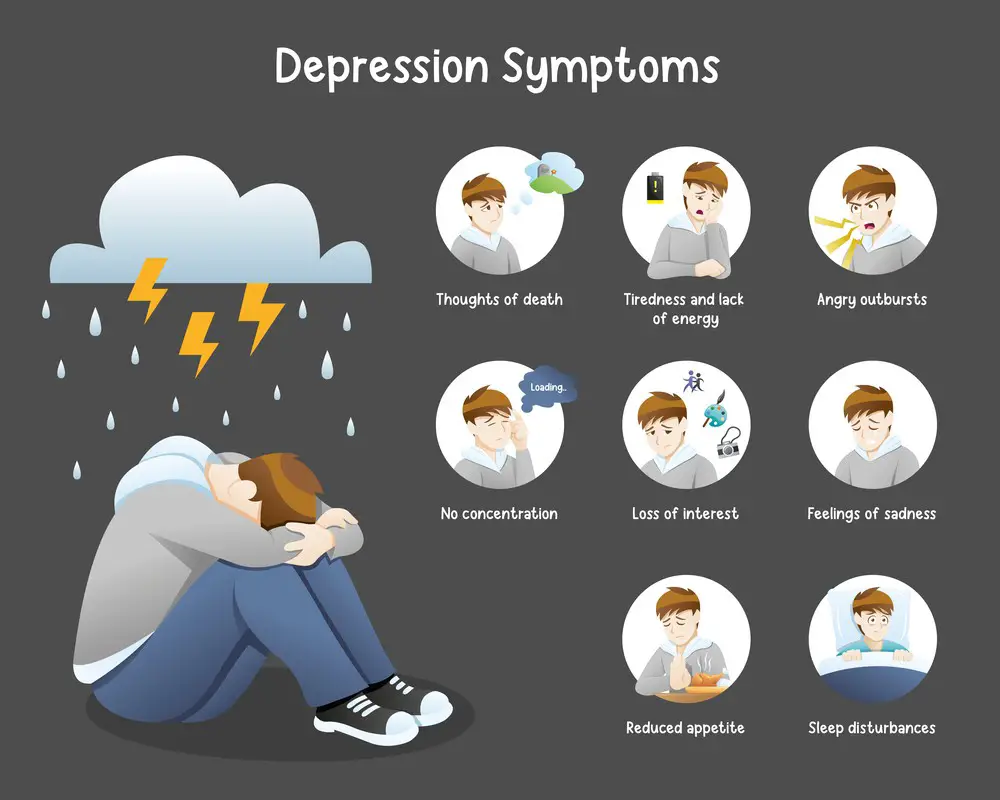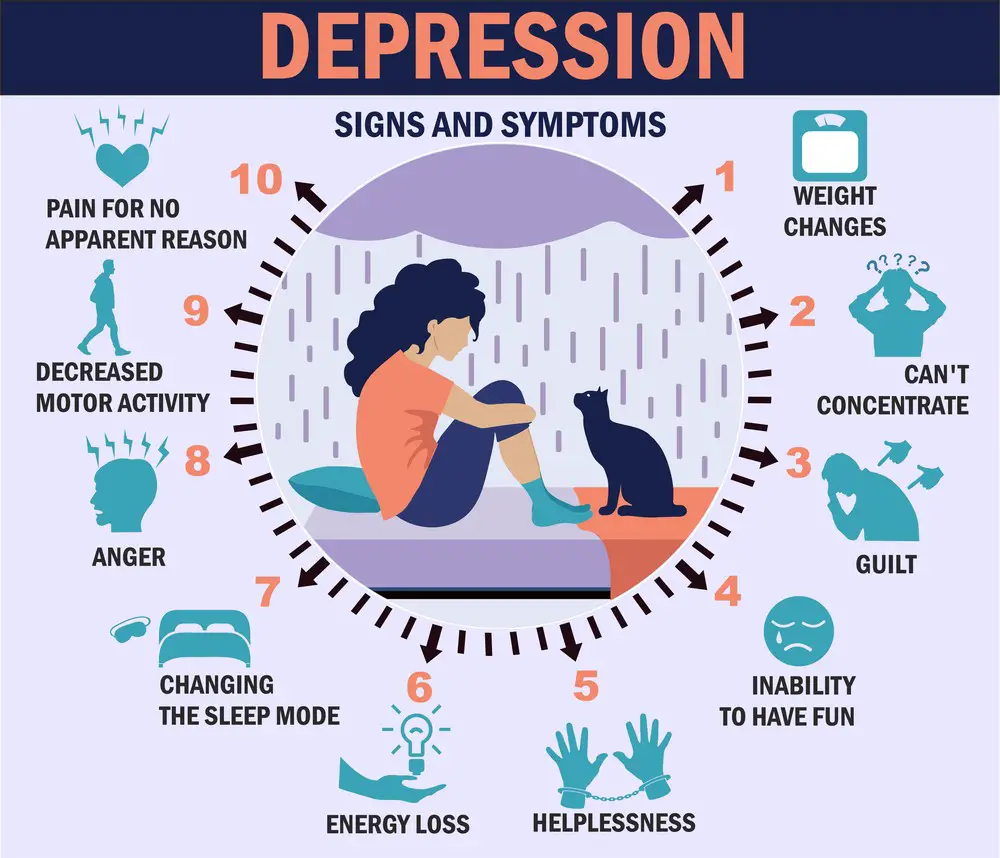When your spouse travels frequently, it can stir a mix of emotions. While some see it as an opportunity for personal space, others may find the separation challenging, especially if it leads to feelings of depression. Being apart from a spouse disrupts daily routines and can create a sense of loneliness that’s difficult to shake. Acknowledging these feelings as valid and understanding that they are a typical response to your significant other’s absence is essential.
In coping with these periods of separation, it’s crucial to confront the negative emotions head-on. Depression is a severe mental health condition that can affect anyone, irrespective of the situation. It requires attention and care. While support from friends and family can be invaluable, finding personal coping strategies is equally important. Taking proactive steps to maintain your mental health can make a significant difference in managing the emotional toll of a traveling spouse.
Key Takeaways
- Separation from a traveling spouse can lead to feelings of loneliness and depression.
- Depression is a severe mental health condition that requires attention and self-care.
- Proactive coping strategies are vital for maintaining mental health during these times.
 Understanding Depression
Understanding Depression
When your spouse is away and travels frequently, feelings of loneliness can escalate. It’s essential to recognize whether these feelings are part of a broader condition like depression.
Identifying Symptoms
If you find yourself feeling persistently sad or in a low mood, these could be symptoms of depression. Specific indicators to watch for include:
- Persistent Sadness: A deep, ongoing sadness that doesn’t seem to lift.
- Fatigue: More than just being tired, it’s a sense of exhaustion that doesn’t go away with rest.
- Lethargy: This refers to a decline in energy or a lack of motivation to do things you usually would find enjoyable.
- Hopelessness: A feeling that things won’t get better no matter what you do.
 Recognizing Signs in a Traveling Spouse
Recognizing Signs in a Traveling Spouse
Your spouse’s constant travel can bring unique challenges, and it’s vital to notice signs of depression in them. These may manifest as:
- Withdrawal: They might seem distant or uninterested in engagement when they’re home.
- Irritability: Small frustrations may set them off more quickly than usual.
- Change in Communication: They might call or text less often, seeming disengaged from the relationship.
- Altered Sleep Patterns: They may sleep much more or less than usual, which is a common sign of depression.
Key Takeaway: It’s crucial to understand the symptoms and signs of depression both in yourself and your spouse, as it can help in seeking appropriate support and maintaining your relationship’s health.
Maintaining a Connection
It’s critical to keep the emotional bond strong when your spouse travels. This means regular and meaningful conversations and using technology smartly to bridge the distance.
Fostering Communication
Communication is the lifeline of your relationship, especially when distance is thrown into the mix. Keep your conversations vibrant and heartfelt.
- Schedule regular check-ins: Set aside a specific time for daily calls or texts. Treat these as necessary appointments.
- Be intentional: Use your time to share your day, express feelings, and offer support. It’s not just about the frequency of communication but the quality.
- Listen actively: Show you care by listening carefully and responding thoughtfully to your spouse’s shares.
Key Takeaway: Consistent, thoughtful communication reinforces your bond.
 Leveraging Technology
Leveraging Technology
Modern tech offers a variety of ways to feel close, even when miles apart.
- Video calls: Use platforms like Zoom or Skype for face-to-face interaction, which is the next best thing to being in the same room.
- Messaging apps: Send instant messages for quick updates, exchange photos, or share voice notes to break the monotony of text.
- Online activities: Watch a movie together online or play games to maintain a sense of shared experience and fun.
Key Takeaway: Harnessing technology can create shared moments and nurture intimacy despite the physical distance.
Supporting Your Spouse
When your spouse travels frequently, maintaining mental health can be challenging. You can play a pivotal role in their well-being by focusing on support and encouraging love.
Being an Encouraging Partner
- Communicate Openly: Ensure that you express your feelings and listen actively. Use video calls or messages to stay connected.
- Show Interest: Ask about their day and share their experiences, reinforcing that they’re not alone, even from a distance.
- Small Gestures: Surprise them with letters or care packages to tangibly show your love and support.
Key Takeaway: Encouragement goes a long way; your support can be a beacon of positivity for your spouse’s travels.
Establishing a Support System
- Connect with Friends and Family: Build a network of people for mutual support. Include friends, family, and possibly a professional therapist.
- Community Involvement: Encourage your spouse to engage in local activities or groups. A sense of community can be comforting.
- Health and Wellness: Promote healthy habits, like regular exercise and proper nutrition, to support overall mental well-being.
Key Takeaway: A solid support system provides a sense of stability and connection that can mitigate the challenges of frequent traveling.
 Self-Care Strategies
Self-Care Strategies
When your spouse is away, it’s crucial to prioritize your well-being. Taking care of yourself is both a necessity and a form of self-respect. Consider these approaches to maintain your physical and mental health.
Developing Healthy Habits
Routine is your ally. Establishing consistent daily patterns can provide a comforting structure:
- Sleep: Aim for 7-9 hours per night. Consistency is key, so set a regular bedtime and wake-up time.
- Eating: Nourish your body with balanced meals. Think whole grains, lean protein, fruits, and vegetables.
- Exercise: Find a physical activity you enjoy, whether it’s yoga, running, or dancing. Even 30 minutes a day can uplift your mood.
Key Takeaway: Embedding these habits into your daily life can create a sense of normalcy and control.
Finding Joy in Solo Activities
Embrace activities that make you happy. Discovering joy on your terms:
- Set aside time for hobbies like reading, gardening, or crafting.
- Try something new that you’ve been curious about, such as painting or learning a musical instrument.
Key Takeaway: Engaging in enjoyable solo activities can bring a sense of fulfillment and personal growth.
Dealing with Emotions
When your spouse travels, it’s normal to experience mixed emotions. Acknowledging and navigating these feelings is crucial for maintaining your well-being.
Managing Stress and Anxiety
- Identify Triggers: Keep a log of situations that heighten your stress levels. This can help you see patterns and prepare for anxiety-inducing moments.
- Healthy Routines: Establish routines that promote calmness, such as morning meditation or evening walks.
Key Takeaway: Regular self-care activities can significantly reduce stress and help manage anxiety.
Navigating Anger and Frustration
- Express Yourself: Talk to a friend or journal about your feelings to prevent them from bottling up.
- Set Boundaries: Limiting what you can handle while your partner is away is healthy.
Key Takeaway: Communicating your feelings can help diffuse anger and reduce frustration.
 Seeking Professional Help
Seeking Professional Help
When your spouse is away and you’re grappling with depression, it’s critical to acknowledge when it’s time to reach out for professional help. This could be a decisive step towards your well-being.
Considering Therapy
Therapy can be a cornerstone in managing depression.
- Licensed therapists can offer you strategies to cope.
- Individual or group sessions could provide a supportive environment.
- They can tailor approaches specific to your situation.
If you’re hesitant, remember that therapy is a common and practical support for many individuals facing similar challenges.
Medication and Treatment Options
Medication might be suggested alongside therapy.
- Psychiatrists can prescribe antidepressants tailored to your needs.
- Regular check-ins ensure that treatment aligns with your progress.
Remember, combining medication and therapy often results in a more comprehensive treatment plan. Discuss all your concerns and questions about treatment with your mental health professional to ensure you understand your options.
Relationship Dynamics
In marriages or long-term relationships, the dynamics can shift considerably when one spouse travels frequently. Understanding how to maintain intimacy and address potential conflicts is crucial to navigating this situation.
Handling Intimacy and Affection
When your partner is away, maintaining intimacy can be challenging. However, strategies exist to keep the spark alive, even from a distance.
- Regular Communication: Schedule daily calls or video chats. This helps sustain emotional closeness, ensuring you both prioritize each other.
- Personal Touch: Send handwritten letters or care packages. They can serve as a tangible reminder of affection.
Remember, physical separation doesn’t equal emotional distance. Sexual intimacy might be paused, but emotional intimacy can continue to grow with effort.
Key Takeaway: Use thoughtful communication to bridge the physical gap and sustain affection.
Addressing Codependency and Conflict
Travel can expose or exacerbate codependency and conflicts within a relationship. It’s essential to establish healthy independence while tackling issues head-on.
- Self-Reliance: Cultivate your hobbies and interests. This reduces codependency by fostering a sense of individual fulfillment.
- Healthy Dialogue: When conflicts arise, discuss them openly rather than letting them simmer. Be clear about feelings and expectations.
Conflict can be an opportunity for growth if managed constructively. Acknowledge your feelings and remember that resolution comes through understanding and compromise.
Key Takeaway: Strengthen self-reliance and approach conflicts to deepen understanding.
Creating a Healthy Environment
Maintaining a sense of normalcy and positivity at home is crucial when your spouse travels. Strengthening your social connections and establishing routines are vital strategies to thrive during these times.
Organizing Social Support
Reach out to Family and Friends:
- Contact family and friends to plan visits or outings.
- Join or create a support group to share experiences and feel understood.
Support Group Engagement:
- Identify support group meetings, either local or online, that focus on spouses of frequent travelers.
- Make attendance a part of your schedule to connect with others who relate to your situation regularly.
Setting Comforting Routines
Develop a Routine Centered Around Self-Care:
- Incorporate daily exercise, such as a brisk walk or a yoga class, to boost your mood.
- Schedule time for activities that make you happy, like reading or gardening.
Daily Rituals for Stability:
- Morning: Start with a healthy breakfast and a to-do list to set the tone for the day.
- Evening: Unwind with calming activities, like a warm bath or listening to music.
Key takeaway: Establishing these practices can foster a nurturing environment, helping you cope with a traveling spouse while staying engaged and positive.
Coping with Separation
When your spouse travels, you may feel a spectrum of emotions, from loneliness to a lack of motivation. It’s critical to address these feelings head-on and find constructive ways to cope during this period of separation.
Dealing with Loneliness
Feeling lonely is a natural response when your partner is away. It’s important to acknowledge these emotions and then take proactive steps to manage them:
- Connect with others: Reach out to friends and family. Scheduling regular calls can provide a sense of companionship.
- Community involvement: Join clubs or groups that share your interests to foster a sense of belonging.
Key Takeaway: Stay socially active to combat loneliness—your emotional health will thank you.
Positive Behavioral Activation
Behavioral activation involves engaging in positive activities that boost your mood and motivation. Here’s how you can implement this strategy:
- List enjoyable activities: Write down things that make you happy and schedule them into your week.
- Set achievable goals: Small, daily objectives can give you a sense of accomplishment.
- Physical exercise: Regular exercise can elevate your mood and provide structure.
- New hobbies: Take this time to try something you’ve been interested in.
Key Takeaway: Positive activities can energize you and create a ripple effect, improving your overall well-being while your spouse travels.
 Lifestyle and Behavior
Lifestyle and Behavior
When your spouse is away, and you’re grappling with depression, it’s crucial to focus on maintaining a healthy lifestyle and practicing beneficial behaviors. These can have a profound impact on your overall well-being.
Improving Sleep and Diet
Sleep: A refreshing night’s sleep is foundational to emotional resilience.
- Stick to a regular bedtime and wake-up schedule.
- Ensure your bedroom is quiet and comfortable.
- Limit screen time an hour before sleeping.
Diet: Nutritious food can improve mood and energy levels.
- Include a variety of fruits and vegetables in your meals.
- Opt for whole grains and lean proteins to sustain energy.
- Stay hydrated with water instead of sugary drinks.
Key Takeaway: Prioritize sleep and nutrition to fuel your body and uplift your mood.
Avoiding Negative Coping Mechanisms
It’s tempting to fall into unhealthy habits to ease the loneliness or stress.
Alcohol: While it might seem to offer a temporary escape, it can exacerbate depression.
- Limit alcohol consumption to moderate levels.
- Seek social activities that don’t revolve around drinking.
Drugs: Non-prescribed drugs offer no solution and can lead to dependency.
- Avoid using drugs as a coping mechanism.
- Invest time in hobbies or exercise as healthier stress relievers.
Key Takeaway: Sidestep harmful habits by seeking positive activities and support.
 Planning for the Future
Planning for the Future
When your spouse travels, crafting a plan that maintains your emotional well-being is essential. Here’s how you can set achievable goals and foster a sense of hope during these times.
Setting Attainable Goals
Start by mapping out clear, reachable objectives that keep you grounded:
- Define daily self-care practices.
- List weekly social interactions.
- Specify career or hobby milestones to hit monthly.
Key Takeaway: Forming these targets gives you a structure to hold onto, offering a buffer against feelings of helplessness.
Fostering Hope and Motivation
To nurture a forward-looking attitude:
- Remember that this phase is temporary, and the future holds shared experiences with your spouse.
- Celebrate every small victory toward your goals, reinforcing the positivity in your life.
Key Takeaway: Encouraging yourself and acknowledging progress infuses your daily life with motivation and displaces hopelessness with love and anticipation.
Frequently Asked Questions
When your spouse travels often, it can stir up emotions. Here, you’ll find answers addressing common concerns, offering a roadmap to navigate this challenging time more easily.
How can someone manage feelings of anxiety when their partner is frequently traveling?
You can manage anxiety by establishing routines that anchor your day. Engage in regular exercise, which acts as a natural stress reliever. Meditation and mindfulness can calm racing thoughts, grounding you in the present moment. Key takeaway: Stick to routines that foster a sense of stability.
What coping strategies effectively combat loneliness when living apart from a spouse due to travel?
To combat loneliness, immerse yourself in a hobby or activity that brings you joy. Reach out and strengthen your social network by connecting with friends and family. Keeping busy helps redirect your focus from loneliness to personal growth and community. Key takeaway: Fill your life with activities that resonate with you.
In what ways can communication with a traveling spouse be maintained to reduce feelings of depression?
Maintaining communication is crucial, so agree to video chat or call regularly. Share updates through texts or emails to stay involved in each other’s daily lives. Consider writing letters for a personal touch. Key takeaway: Consistent, varied communication keeps you connected emotionally.
What self-care practices can help during prolonged separation from a partner?
Self-care is key. Prioritize sufficient sleep, a balanced diet, and time for relaxation. Treat yourself to activities that lift your spirits, like reading a good book or having a spa day at home. Key takeaway: Caring for your well-being helps manage separation stress.
How does the ‘trailing spouse syndrome’ affect mental health, and what can be done about it?
‘Trailing spouse syndrome’ often leads to feelings of isolation and identity loss. To tackle this, set personal goals and pursue opportunities for self-improvement or career advancement. Building a support network locally or online with others in similar situations can also provide comfort and advice. Key takeaway: Forge your path to counteract the adverse effects of ‘trailing spouse syndrome.’
What are the psychological impacts of a partner’s extended travel, and how can the remaining spouse adapt?
Extended travel can bring about anxiety, loneliness, and strain on the relationship. Adapt by creating new routines, seeking peer support, and finding joy in independence. Remember, personal growth during this time can strengthen your relationship in the long run. Key takeaway: Embrace the opportunity for self-discovery and personal development.
- The Burnout Epidemic: Why We’re All Feeling Overwhelmed and How to Cope - February 9, 2024
- How to Live a Peaceful Life - February 9, 2024
- Useful Information You Should Know About Health Screenings - February 8, 2024
This site contains affiliate links to products. We will receive a commission for purchases made through these links.


 Understanding Depression
Understanding Depression Recognizing Signs in a Traveling Spouse
Recognizing Signs in a Traveling Spouse Leveraging Technology
Leveraging Technology Self-Care Strategies
Self-Care Strategies Seeking Professional Help
Seeking Professional Help Lifestyle and Behavior
Lifestyle and Behavior Planning for the Future
Planning for the Future

